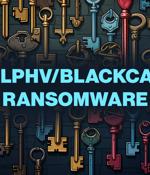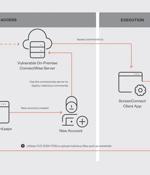Security News

ALPHV/BlackCat, the gang behind the Change Healthcare cyberattack, has received more than $22 million in Bitcoin in what might be a ransomware payment. Dmitry Smilyanets, an intelligence analyst at infosec outfit Recorded Future, spotted a Bitcoin wallet believed to be linked to ALPHV received 350 Bitcoins, right now worth at least $22 million, in a single transaction on March 1.

Ransomware attacks on healthcare over the last few months have been relentless, with numerous ransomware operations targeting hospitals and medical services, causing disruption to patient care and access to prescription drugs in the USA. The most impactful attack of 2024 so far is the attack on UnitedHealth Group's subsidiary Change Healthcare, which has had significant consequences for the US healthcare system. To make matters worse, the BlackCat ransomware operation, aka ALPHV, claims to have stolen 6TB of data from Change Healthcare during the attack, containing the personal information of millions of people.

The ALPHV/BlackCat ransomware group has claimed responsibility for the cyberattack that targeted Optum, a subsidiary of UnitedHealth Group, causing disruption to the Change Healthcare platform and affecting pharmacy transactions across the US. ALPHV/BlackCat is back. 3000+ source code files for Change Healthcare solutions.

The ALPHV/BlackCat cybercrime gang has taken credit - if that's the word - for a ransomware infection at Change Healthcare that has disrupted thousands of pharmacies and hospitals across the US, and also claimed that the amount of sensitive data stolen and affected health-care organizations is much larger than the victims initially disclosed. UnitedHealth owns the healthcare IT provider, and more than 70,000 pharmacies across the USA use its software to process insurance claims and fill prescriptions.

The BlackCat/ALPHV ransomware gang has officially claimed responsibility for a cyberattack on Optum, a subsidiary of UnitedHealth Group, which led to an ongoing outage affecting the Change Healthcare platform. Change Healthcare is the largest payment exchange platform used by more than 70,000 pharmacies across the United States.

The U.S. government is warning about the resurgence of BlackCat (aka ALPHV) ransomware attacks targeting the healthcare sector as recently as this month. "Since mid-December 2023, of the nearly 70...

The ALPHV/BlackCat ransomware gang is reportedly responsible for the massive Change Healthcare cyberattack that has disrupted pharmacies across the US since last week. The Register has not independently confirmed that ALPHV was involved in the intrusion.

US healthcare giant UnitedHealth Group announced that its subsidiary Optum suffered a cyberattack by "Nation-state" hackers on the Change Healthcare platform, forcing the company to shut down IT systems and various services.Its subsidiary, Optum Solutions, operates the Change Healthcare platform, which is the largest payment exchange platform between doctors, pharmacies, healthcare providers, and patients in the US healthcare system.

On Thanksgiving Day 2023, while many Americans were celebrating, hospitals across the U.S. were doing quite the opposite. Systems were failing. Ambulances were diverted. Care was impaired....

French healthcare services firm Viamedis suffered a cyberattack that exposed the data of policyholders and healthcare professionals in the country. Though the company's website remains offline at the time of writing, an announcement was posted on LinkedIn warning of the data breach.